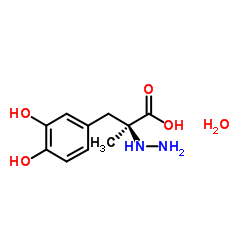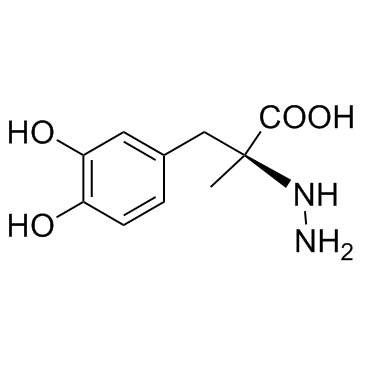| Structure | Name/CAS No. | Articles |
|---|---|---|
 |
Carbidopa monohydrate
CAS:38821-49-7 |
|
 |
Carbidopa
CAS:28860-95-9 |